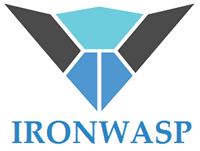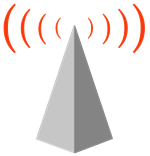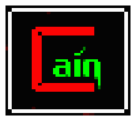A GUIDE FOR FINANCIAL FRAUD INVESTIGATION & PRECAUTION, SHIVANI SHARMA [read my book txt] 📗

- Author: SHIVANI SHARMA
Book online «A GUIDE FOR FINANCIAL FRAUD INVESTIGATION & PRECAUTION, SHIVANI SHARMA [read my book txt] 📗». Author SHIVANI SHARMA
Download link: https://www.aircrack-ng.org/downloads.html
8) Angry IP Scanner:

Angry IP Scanner is open-source and cross-platform ethical hacking tool. It scans IP addresses and ports.
Features:
Scans local networks as well as the Internet Free and open-source tool Random or file in any format Exports results into many formats Extensible with many data fetchers Provides command-line interface Works on Windows, Mac, and Linux No need for InstallationDownload link: http://angryip.org/download/#windows
9) GFI LanGuard:

GFI LanGuard is an ethical tool that scan networks for vulnerabilities. It can acts as your 'virtual security consultant' on demand. It allows creating an asset inventory of every device.
Features:
It helps to maintain a secure network over time is to know which changes are affecting your network and Patch management: Fix vulnerabilities before an attack Analyze network centrally Discover security threats early Reduce cost of ownership by centralizing vulnerability scanning Help to maintain a secure and compliant networkDownload link: https://www.gfi.com/products-and-solutions/network-security-solutions/gfi-languard/download
10) Savvius:

It is an ethical hacking tool. It performance issues and reduces security risk with the deep visibility provided by Omnipeek. It can diagnose network issues faster and better with Savvius packet intelligence.
Features:
Powerful, easy-to-use network forensics software Savvius automates the capture of the network data required to quickly investigate security alerts Software and integrated appliance solutions Packet intelligence combines deep analysis Rapid resolution of network and security issues Easy to use Intuitive workflow Expert and responsive technical support Onsite deployment for appliances Commitment to our customers and our productsDownload link: https://www.savvius.com/distributed_network_analysis_suite_trial
11) QualysGuard:

Qualys guard helps businesses streamline their security and compliance solutions. It also builds security into their digital transformation initiatives. This tool can also check the performance vulnerability of the online cloud systems.
Features:
It is trusted globally No hardware to buy or manage It is a scalable, end-to-end solution for all aspects of IT security Vulnerability data securely stored and processed on an n-tiered architecture of load-balanced servers It sensor provides continuous visibility Data analyzed in real time It can respond to threats in a real-timeDownload link: https://www.qualys.com/forms/freescan/
12) WebInspect:

WebInspect is automated dynamic application security testing that allows performing ethical hacking techniques. It provides comprehensive dynamic analysis of complex web applications and services.
Features:
Allows to test dynamic behavior of running web applications to identify security vulnerabilities Keep in control of your scan by getting relevant information and statistics at a glance Centralized Program Management Advanced technologies, such as simultaneous crawl professional-level testing to novice security testers Easily inform management on vulnerability trending, compliance management, and risk oversightDownload link: https://saas.hpe.com/en-us/software/webinspect
13) Hashcat:

Hashcat is a robust password cracking ethical hacking tool. It can help users to recover lost passwords, audit password security, or just find out what data is stored in a hash.
Features:
Open-Source platform Multi-Platform Support Allows utilizing multiple devices in the same system Utilizing mixed device types in the same system It supports distributed cracking networks Supports interactive pause/resume Supports sessions and restore Built-in benchmarking system Integrated thermal watchdog Supports automatic performance tuningDownload link: https://hashcat.net/hashcat/
14) L0phtCrack:

L0phtCrack 6 is useful password audit and recovery tool. It identifies and assesses password vulnerability over local machines and networks.
Features:
Multicore & multi-GPU support helps to optimize hardware Easy to customize Simple Password Loading Schedule sophisticated tasks for automated enterprise-wide password Fix weak passwords issues by forcing password resets or locking accounts It allows multiple auditing OSesDownload link: http://www.l0phtcrack.com/#download-form
15) Rainbow Crack:
RainbowCrack is a password cracking tool widely used for ethical hacking. It cracks hashes with rainbow tables. It uses time-memory tradeoff algorithm for this purpose.
Features:
Full time-memory trade-off tool suites, including rainbow table generation It Support rainbow table of any hash algorithm Support rainbow table of any charset Support rainbow table in raw file format (.rt) and compact file format Computation on multi-core processor support GPU acceleration with multiple GPUs Runs on Windows OS and Linux Unified rainbow table file format on every supported OS Command line user interface Graphics user interfaceDownload link: http://project-rainbowcrack.com/index.htm
16) IKECrack:
IKECrack is an open source authentication crack tool. This ethical hacking tool is designed to brute-force or dictionary attack. This tool also allows performing cryptography tasks.
Features:
IKECrack is a tool that allows performing Cryptography tasks Initiating client sends encryption options proposal, DH public key, random number, and an ID in an unencrypted packet to the gateway/responder. It is freely available for both personal and commercial use. Therefore, it is perfect choice for user who wants an option for Cryptography programsDownload link: http://ikecrack.sourceforge.net/
17) IronWASP:

IronWASP is an open source software for ethical hacking too. It is web application vulnerability testing. It is designed to be customizable so that users can create their custom security scanners using it.
Features:
GUI based and very easy to use It has powerful and effective scanning engine Supports for recording Login sequence Reporting in both HTML and RTF formats Checks for over 25 types of web vulnerabilities False Positives and Negatives detection support It supports Python and Ruby Extensible using plug-ins or modules in Python, Ruby, C# or VB.NETDownload link: http://ironwasp.org/download.html
18) Medusa
Medusa is one of the best online brute-force, speedy, parallel password crackers ethical hacking tool. This tool is also widely used for ethical hacking.
Features:
It is designed in such a way that it is speedy, massively parallel, modular, login brute-forcer The main aim of this tool is to support as many services which allow remote authentication Allows to perform Thread-based parallel testing and Brute-force testing Flexible user input. It can be specified in a variety of ways All the service module exists as an independent .mod file. No modifications are needed to the core application to extend the supported list of services for brute-forcingDownload link: http://foofus.net/goons/jmk/medusa/medusa.html
19) NetStumbler

NetStumbler is used to detect wireless networks on the Windows platform.
Features:
Verifying network configurations Finding locations with poor coverage in a WLAN Detecting causes of wireless interference Detecting unauthorized ("rogue") access points Aiming directional antennas for long-haul WLAN linksDownload link: http://www.stumbler.net/
20) SQLMap

SQLMap automates the process of detecting and exploiting SQL Injection weaknesses. It is open source and cross platform. It supports the following database engines.
MySQL Oracle Postgre SQL MS SQL Server MS Access IBM DB2 SQLite Firebird Sybase and SAP MaxDBIt supports the following SQL Injection Techniques;
Boolean-based blind Time-based blind Error-based UNION query Stacked queries and out-of-band.Download link: http://sqlmap.org/
21) Cain & Abel

Cain & Abel is a Microsoft Operating System passwords recovery tool. It is used to -
Recover MS Access passwords Uncover password field Sniffing networks Cracking encrypted passwords using dictionary attacks, brute-force, and cryptanalysis attacks.Download link: http://www.softpedia.com/get/Security/Decrypting-Decoding/Cain-and-Abel.shtml
22) Nessus

Nessus can be used to perform;
Remote vulnerability scanner Password dictionary attacks Denial of service attacks.It is closed source, cross platform and free for personal use.
Download link: http://www.tenable.com/products/nessus-vulnerability-scanner
20 Common Types of Viruses Affecting Your Computer
20 Common Types of Viruses Affecting Your Computer
When we talk about computer security, the virus is the leading threat. It can destroy a single program or the whole computer system instead. The very first virus was created in the 1970s and was called the Creeper virus, affecting computers on the ARPANET. In 1981, the first hacker-made virus came into existence and spread through Apple floppy drives.
According to the Information-Technology Promotion Agency, the numbers of viruses ballooned to 52,151 in 2004. However, due to certain programs that completely eliminate viruses, their numbers decreased to about 14,000 in 2010.
57% of the threats affecting your computer security is viruses. Other threats include Trojans, adware, worms, and malware, among others. Now, viruses are still widespread, affecting PC performance. Viruses are also tools of hackers to gain unauthorised access to your system and steal private information. It is important that you are aware of the different types of viruses that are affecting your computers.
Resident Virus
Resident viruses live in your RAM memory. It can interfere with normal system operation which can lead to the corruption of files and programs. The most popular examples of resident viruses are CMJ, Meve, MrKlunky, and Randex.
Multipartite Virus
This type of virus can easily spread in your computer system. It is very infectious, performing unauthorized actions in your operating system, in folders, and other programs on the computer. They have the ability to infect both the executable files and the boots sector.
 Direct Action Virus
Direct Action Virus
Direct action viruses attack certain types of files, typically .exe and .com files. The main purpose of this virus is to replicate and infect files in folders. On the lighter note, they do not typically delete files or affect PC performance and speed. It can be easily removed by antivirus programs.
Browser Hijacker
This type of virus infects your web browser in which it will bring you to different websites. Typically, if you key in a domain name in the internet address bar, the browser hijacker will open multiple fake websites that may harm your computer. On the other hand, most trusted browsers have built-in features to block them ahead.
Overwrite Virus
From the name itself, this virus overwrites the content of a file, losing the original content. It infects folders, files, and even programs. To delete this virus, you also need to get rid of your file. Thus, it is important to back up your data.
Web Scripting Virus
This virus lives in certain links, ads, image placement, videos, and layout of a website. These may carry malicious codes in which when you click, the viruses will be automatically downloaded or will direct you to malicious websites.
Boot Sector Virus
Boot sector viruses affect floppy disks. They came to existence when floppy disks are important in booting a computer. Although they are not very common today, it is still causing other computer units, especially the outdated ones. Some examples include Polyboot.B and AntiEXE.
 Macro Virus
Macro Virus
Macro viruses target applications and software that contain macros. These viruses can carry out series of operations affecting the performance of the program or software. Some examples of macro viruses are O97M/Y2K, Bablas, Melissa.A, and Relax.
Directory Virus
Directory viruses change file paths. When you run programs and software that are infected with directory viruses, the virus program also runs in the background. Further, it may be difficult for you to locate the original app or software once infected with directory viruses.
Polymorphic Virus
Polymorphic viruses use a special method of encoding or encryption every time they infect a system. With this, antivirus software finds it hard to locate then using signature searches. They are also capable of replicating easily. Polymorphic viruses include Satan Bug, Elkern, Tuareg, and Marburg.
File Infector Virus
This virus also infects executable files or programs. When you run these programs, the file infector virus is activated as well which can slow down the program and produce other damaging effects. A large block of existing viruses belongs to this category.
Encrypted Virus
This type of virus uses encrypted malicious codes which make antivirus software





Comments (0)